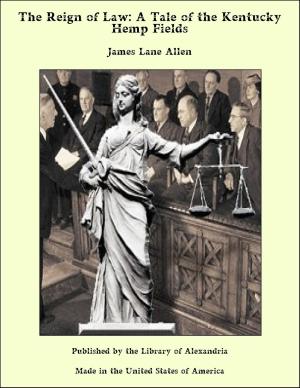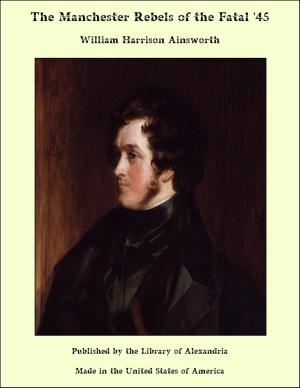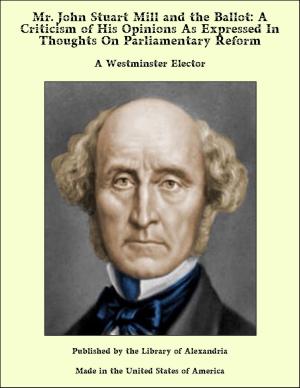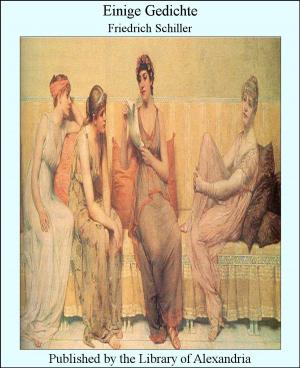The New German Constitution
Nonfiction, Religion & Spirituality, New Age, History, Fiction & Literature| Author: | René Brunet | ISBN: | 9781465616210 |
| Publisher: | Library of Alexandria | Publication: | March 8, 2015 |
| Imprint: | Language: | English |
| Author: | René Brunet |
| ISBN: | 9781465616210 |
| Publisher: | Library of Alexandria |
| Publication: | March 8, 2015 |
| Imprint: | |
| Language: | English |
Germany was a federal state, that is to say, above the member states, which renounced a part of their individual independence to strengthen their collective political and economic power, there existed a central state in whose favor they had given up that degree of independence—the German Empire. In the Reich sovereign power belonged to an assembly of Princes and of governments represented by the Bundesrat or Federal Council. This council which consisted of representatives of all the member states shared with the Reichstag the power to initiate and vote legislation. It promulgated the general administrative measures necessary for the execution of the laws; and with the consent of the Emperor it could dissolve the Reichstag. The nation was presided over by the German Emperor. He exercised generally the rights which modern nations reserve to the executive power. In particular he represented the Empire in its international relations; promulgated its laws; watched over their execution; appointed civil and military officials, etc. Several remarkable details have to be pointed out. Although in principle the Emperor’s actions had to be countersigned by a minister he was free from that restriction in such matters as concerned military affairs, particularly in the nomination of the superior officers of the army and the navy. The German Emperor was the absolute chief of the forces of the Empire on sea and land. Furthermore, although he could not declare war without the consent of the Bundesrat he could act on his own authority in case of attack by a foreign power against the territory or the coasts of the German Confederation. The Emperor nominated the Chancellor, who was after the Emperor himself, the sole chief of the political and administrative organization of the Empire. “The Chancellor,” says Article 15, “presides over the Bundesrat and directs its labours.” But as he clearly could not himself assume such an overwhelming task, he was authorized by the law of March 17, 1878, to call assistance and be supplemented at need by high functionaries placed at the head of Imperial departments—those of foreign affairs, of the interior, justice, treasury, railroads, marine, colonies, posts and telegraphs. These officials carried the title of State Secretaries, which seemed to give them something of the nature of ministers, though in reality they were completely subordinated to the Chancellor. Just as the Bundesrat represented the federated Princes so the Reichstag represented the German people. Elected by direct and universal suffrage the Reichstag had the right to initiate legislation; and no law was operative unless it had obtained a majority both in the Bundesrat and in the Reichstag. Furthermore the Reichstag had the right to interpellate, not the Secretaries of State but the Chancellor himself and to ask questions; and discussions of a question could be closed by voting an expression of the confidence of the Assembly.
Germany was a federal state, that is to say, above the member states, which renounced a part of their individual independence to strengthen their collective political and economic power, there existed a central state in whose favor they had given up that degree of independence—the German Empire. In the Reich sovereign power belonged to an assembly of Princes and of governments represented by the Bundesrat or Federal Council. This council which consisted of representatives of all the member states shared with the Reichstag the power to initiate and vote legislation. It promulgated the general administrative measures necessary for the execution of the laws; and with the consent of the Emperor it could dissolve the Reichstag. The nation was presided over by the German Emperor. He exercised generally the rights which modern nations reserve to the executive power. In particular he represented the Empire in its international relations; promulgated its laws; watched over their execution; appointed civil and military officials, etc. Several remarkable details have to be pointed out. Although in principle the Emperor’s actions had to be countersigned by a minister he was free from that restriction in such matters as concerned military affairs, particularly in the nomination of the superior officers of the army and the navy. The German Emperor was the absolute chief of the forces of the Empire on sea and land. Furthermore, although he could not declare war without the consent of the Bundesrat he could act on his own authority in case of attack by a foreign power against the territory or the coasts of the German Confederation. The Emperor nominated the Chancellor, who was after the Emperor himself, the sole chief of the political and administrative organization of the Empire. “The Chancellor,” says Article 15, “presides over the Bundesrat and directs its labours.” But as he clearly could not himself assume such an overwhelming task, he was authorized by the law of March 17, 1878, to call assistance and be supplemented at need by high functionaries placed at the head of Imperial departments—those of foreign affairs, of the interior, justice, treasury, railroads, marine, colonies, posts and telegraphs. These officials carried the title of State Secretaries, which seemed to give them something of the nature of ministers, though in reality they were completely subordinated to the Chancellor. Just as the Bundesrat represented the federated Princes so the Reichstag represented the German people. Elected by direct and universal suffrage the Reichstag had the right to initiate legislation; and no law was operative unless it had obtained a majority both in the Bundesrat and in the Reichstag. Furthermore the Reichstag had the right to interpellate, not the Secretaries of State but the Chancellor himself and to ask questions; and discussions of a question could be closed by voting an expression of the confidence of the Assembly.















